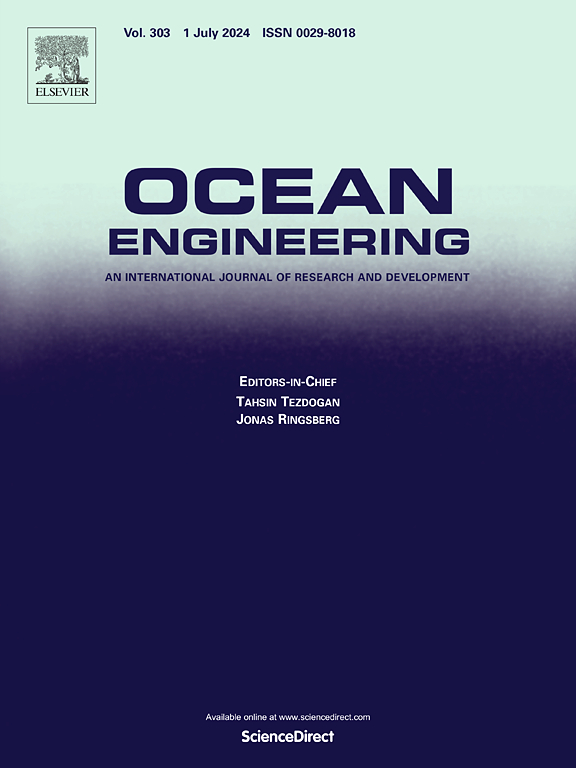A behavior-informed adaptive algorithm for hierarchical compression of ship trajectories
IF 5.5
2区 工程技术
Q1 ENGINEERING, CIVIL
引用次数: 0
Abstract
The Automatic Identification System (AIS) plays a pivotal role in maritime monitoring, yet its high-frequency data often cause redundancy, affecting storage and downstream analysis. Existing compression algorithms often fail to capture vessel behavior semantics, making it difficult to balance compression rate and semantic preservation in complex scenarios. To address this, we propose a behavior-informed adaptive framework for hierarchical trajectory compression. The framework integrates stay region identification, behavior-oriented segmentation, and multi-feature adaptive compression, enabling differentiated compression across various navigation phases. Stay regions are identified using motion features and spatial density. Navigational behavior patterns are constructed from course sequences, and segmentation is performed using a combination of discrete wavelet transform and entropy-based techniques. Furthermore, introduce multi-dimensional deviation factors and trajectory bending factors, while dynamically setting the compression threshold through a baseline scale adjustment mechanism. In experiments across three representative maritime regions, our method achieves an average compression rate of 78.4 % with a mean spatial error of only 57.8 m, while also maintaining low speed error (0.154 kn) and course error (26.9°). Compared with the benchmark and six advanced algorithms, it consistently delivers the best overall performance, and tests on four typical trajectories further validate its adaptability and robustness.
基于行为的船舶轨迹分层压缩自适应算法
自动识别系统(AIS)在海上监测中发挥着关键作用,但其高频数据往往造成冗余,影响存储和下游分析。现有的压缩算法往往无法捕获船舶行为语义,使得在复杂场景下难以平衡压缩率和语义保存。为了解决这个问题,我们提出了一种行为知情的分层轨迹压缩自适应框架。该框架集成了停留区域识别、面向行为的分割和多特征自适应压缩,实现了不同导航阶段的差异化压缩。使用运动特征和空间密度来确定停留区域。从航线序列中构建导航行为模式,并结合离散小波变换和基于熵的技术进行分割。引入多维偏差因子和轨迹弯曲因子,通过基线尺度调节机制动态设置压缩阈值。在三个代表性海域的实验中,我们的方法实现了78.4%的平均压缩率,平均空间误差仅为57.8 m,同时保持了较低的速度误差(0.154 kn)和航向误差(26.9°)。与基准算法和六种先进算法相比,该算法始终具有最佳的综合性能,并对四种典型轨迹进行了测试,进一步验证了该算法的适应性和鲁棒性。
本文章由计算机程序翻译,如有差异,请以英文原文为准。
求助全文
约1分钟内获得全文
求助全文
来源期刊

Ocean Engineering
工程技术-工程:大洋
CiteScore
7.30
自引率
34.00%
发文量
2379
审稿时长
8.1 months
期刊介绍:
Ocean Engineering provides a medium for the publication of original research and development work in the field of ocean engineering. Ocean Engineering seeks papers in the following topics.
 求助内容:
求助内容: 应助结果提醒方式:
应助结果提醒方式:


